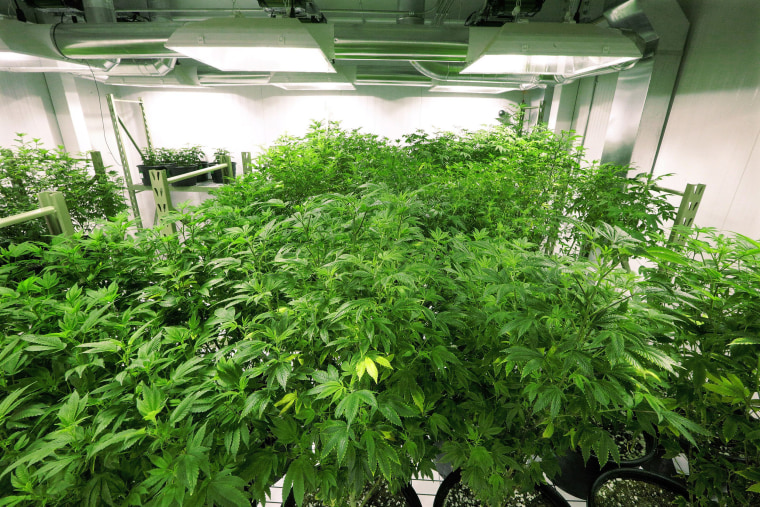For decades, the United States' "war on drugs" only moved in one punitive direction. Elected officials felt compelled to go along, because the alternative was facing an expected public backlash, with allegations of being "soft on drugs" or "soft on crime."
The politics of the issue have changed quickly in ways that were difficult to predict in the recent past. The Democratic-led House voted today, for example, on a reform bill that would, among other things, remove marijuana from the federal Controlled Substances Act. NBC News reported:
The House voted Friday on the Marijuana Opportunity Reinvestment and Expungement Act, or MORE Act, which decriminalizes cannabis and clears the way to erase nonviolent federal marijuana convictions.... The MORE Act also creates pathways for ownership opportunities in the emerging industry, allows veterans to obtain medical cannabis recommendations from Veteran Affairs doctors, and establishes funding sources to reinvest in communities disproportionately affected by the war on drugs.
The full roll call on today's vote is online here. Note that the bill passed 228 to 164, with overwhelming Democratic support, and with only a handful of members breaking with their party: six Democrats voted "nay," and five Republicans voted "aye."
The partisan split matters -- the more the GOP makes gains on Capitol Hill, the less likely reform measures will even be considered -- but so too does the historic breakthrough. When was the last time either chamber of Congress even tried to pass a bill to decriminalize cannabis? Never. Today was the first.
What's more, as regular readers may recall, today's U.S. House vote comes on the heels of voters in five states — Arizona, New Jersey, South Dakota, Montana and Mississippi — approving measures last month to legalize at least some form of marijuana use. (Voters in Oregon and Washington, D.C., also approved measures to allow for the therapeutic use of psychedelic mushrooms.)
As things stand, 15 states, two territories, and Washington, D.C., have now legalized marijuana for recreational use, while 34 states and two more territories allow medical marijuana.
Keep in mind, a decade ago, the total number of states allowing recreational marijuana was zero, and members of Congress wanted nothing to do with proposals such as the MORE Act. Americans' attitudes haven't just changed; they've change with striking speed.
Senate Republicans, however, aren't changing much at all. The bill may have passed the House today with relative ease, but like plenty of other popular measures approved over the last two years, it will be ignored by Senate Majority Leader Mitch McConnell (R-Ky.) and his GOP-led chamber.
If, however, Democrats do well in Georgia's upcoming Senate runoff elections, the door will be open to action. Senate Minority Leader Chuck Schumer (D-N.Y.) threw his support behind the MORE Act this afternoon.
"For too long, draconian marijuana laws have contributed to racial inequality," Schumer said in a written statement. "By passing the Marijuana Opportunity Reinvestment and Expungement (MORE) Act, the House has taken a historic step towards finally ending the federal prohibition on marijuana.... These bills are part of a broader movement to address inequities in criminal justice, business and more. Today's bipartisan vote shows just how far that movement has come."

